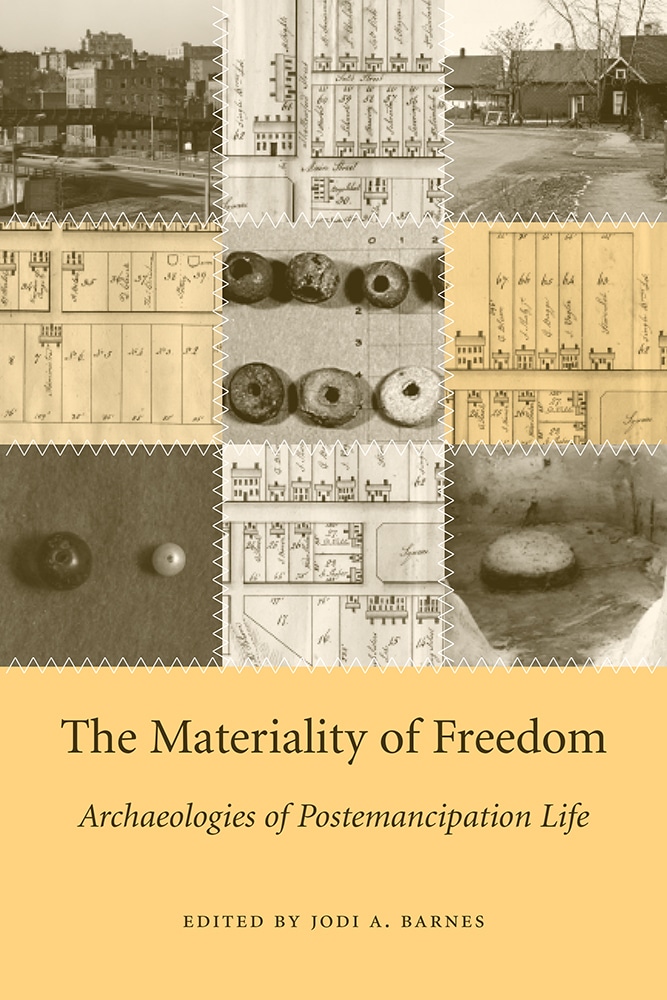Revealing material-culture findings that contextualize historical constructions of race, class, and power
The Materiality of Freedom uses the lens of archaeology to provide original perspectives on the painful Reconstruction and Jim Crow eras by studying the material culture inherent in the struggles for racial equality in America and the Caribbean. Editor Jodi A. Barnes and a cast of notable scholars focus their essays on racial and social strife experienced by African Americans seeking to exercise their newly won civil rights following the Civil War. By studying material objects in a variety of contexts, archaeologists enrich historical narratives and offer grounded insights on the racial and social strife experienced by people of African descent. Building on the body of literature on African American archaeology, the twenty-two contributors to this volume use historical records, maps, and artifacts to examine the material-culture dimensions of churches, cemeteries, plantations, communities, neighborhoods, and towns.
The contributors to this collection assert that exploring the disheartening past of African Americans is essential to understanding contemporary issues of race and power as they delve into the archaeology of places such as the Harriet Tubman Home, the Phyllis Wheatley Home for Girls, Boston Saloon, and Alexandria, Virginia's Contrabands and Freedmen's Cemetery. Urban archaeology methods are also applied to prominent areas of Auburn, New York, Chicago, and the Old Salem Historical District in Winston-Salem. The Materiality of Freedom bridges past and present with community-based research and a combination of archaeological method and theory to highlight contemporary issues of class, gender, race, and social inequality. As these essays open new vistas on the social construction of race and racism, they also demonstrate a more hopeful view on the building of black communities and in the United States and the Caribbean.
Jodi A. Barnes is the staff archaeologist for the South Carolina Department of Archives and History in Columbia. She received her Ph.D. in anthropology from the American University in Washington, D.C. Barnes is the coeditor of Managing Archaeological Resources: Global Context, National Programs, Local Actions.
"The essays are well written and engaging, and each of them offers archaeological evidence that historians of African American history will find interesting and useful."—Florida Historical Quarterly
"Barnes has done an excellent job of bringing together a collection of essays that deal with the various aspects of post-bellum African American life. This volume covers a broad geographic range, perhaps the most geographically comprehensive collection of African American studies that I know, which will widen our understanding of African American archaeology. This collection of essays neatly intersects contemporary and previously unpublished research with current events and contains a who's who of notable scholars in African American archaeology. The Materiality of Freedom is an important work that is well researched, timely, and well written."—Joe Joseph, vice president, New South Associates
